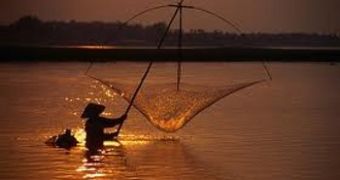The World Wildlife Fund (WWF) has recently decided to look into how plans to dam the Mekong River will impact on the biodiversity of the aquatic ecosystems this water source houses. The conclusions reached by this organization are quite troubling.
Thus, should the dams projects held in store for the Mekong River become a reality, about 60 million people living in nearby communities are bound to lose their primary source of protein, as fish populations will experience a rapid and severe decline in their headcounts.
The organization's official website explains how, for the time being, plans are made to build 11 dams on Mekong's mainstream, and 77 more in the River's basin. The deadline for the implementation of these projects is supposedly represented by the year 2030.
Working on the assumption that all of these dams will eventually be up and running, the World Wildlife Fund discovered that once all of these 88 dam projects are completed, fish supply in these regions will most likely drop by as much as 37.8 per cent.
Moreover, the 11 dams to be erected on the Mekong mainstream will need be held accountable for a drop of 16 per cent in fish supply, which basically means that whatever environmental damage the 77 dams build in the Mekong basin will cause is no match to the negative effects these 11 dams will cause.
Stuart Orr, one of the environmental specialists involved in carrying out this study, explains how, “The Mekong countries are striving for economic growth, and they see hydropower as a driver of that growth. But they must first fully understand and take into account the true economic and social value of a free-flowing Mekong.”
Furthermore, “The Mekong demonstrates the links between water, food and energy. If governments put the emphasis on energy, there are very real consequences for food and water – and therefore people.”
Given the fact that the Mekong river is home to about 850 fresh water fish species, most of which play a major role in providing local communities with a constant food source and income, perhaps it might not be such a bad idea to give due consideration to this study before pushing forward with said damn projects.

 14 DAY TRIAL //
14 DAY TRIAL //